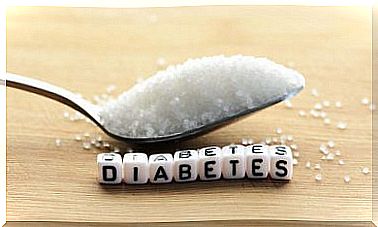Intermittent Explosive Disorder
People with intermittent explosive disorder have a low tolerance for stress and frustration, causing them to engage in aggressive behavior even if the reason is insignificant.

Intermittent explosive disorder is a mental health problem characterized by extreme expressions of anger, with impulsive and violent behaviors. These are generally too exaggerated for the situation in which they occur.
Along with pyromania, gambling, and other disorders, it falls into the category of impulse control disorders that is described in the Diagnostic and Statistical Manual of Mental Illness (DMS-5) published by the American Psychiatric Association.
People who suffer from it have a very low frustration threshold that makes them react aggressively to any setback, however insignificant it may seem. They can even look furious even if seconds before they have been in a good mood.
Intermittent explosive disorder
Individuals with intermittent explosive disorder are unable to control their aggressive behavior when they experience an outburst of anger.
During these episodes, which do not usually last more than an hour, they can have violent reactions with other people, causing them to cause physical or verbal aggression.
Often these reactions occur for situations that are not very frustrating or relevant. For this reason, once the anger has passed, the person questions the reason for their way of acting and ends up having a feeling of guilt for not having controlled their impulses.
Causes of intermittent explosive disorder
There is no exact cause to explain the origin of intermittent explosive disorder. However, like other mental problems, it is likely to be caused by a combination of environmental, psychological and biological factors.
In detail, its possible triggers include:
- History of physical abuse or growing up in violent environments
- Genetics or hereditary components
- History of other mental health disorders such as antisocial personality disorder and attention deficit hyperactivity disorder (ADHD)
- Uncontrols in brain chemistry
- History of substance abuse (drugs or alcohol)
Symptoms of the disorder

The first manifestations of intermittent explosive disorder can occur in childhood. The alteration is common after the age of 6 or during adolescence. Most of the time it manifests itself before the age of 40.
Its main symptom is a sudden aggressive reaction, almost always in situations that do not merit it. This explosive behavior lasts for about 30 minutes and its episodes can occur constantly or separated by several months without aggression.
Other signs that can be seen in the aggressive crisis are:
- Anger and irritability
- Energy boost
- Frenzy of ideas
- Tingling and shaking
- Palpitations and tightness in the chest
- Feeling of pressure in the head
- Screaming or tantrums
- Heated discussions
- Physical and verbal assaults
- Material damage
- Depression and tiredness after anger
- Feeling of guilt and regret
Diagnosis
To confirm the diagnosis of intermittent explosive disorder, the health professional performs a physical examination to determine if there are other possible related illnesses or mental disorders. Then suggest a psychological evaluation.
In the latter a deep analysis of the feelings, behaviors and thoughts of the individual is made. Subsequently, a comparison is made with the criteria described in the DMS-5.
Treatment of the disorder
At the moment there is no single and exclusive treatment to control intermittent explosive disorder. Therefore, after analyzing the situation of each patient, the professional in charge can suggest talk therapy, medications, or both.
1. Psychotherapy

Psychotherapy or talk therapy sessions can be carried out individually, with a family or in a group.
Cognitive behavioral therapy is often applied, helping to identify the situations or behaviors that trigger negative responses.
It also aims to help control anger and aggressive reactions by training in relaxation and thinking shifting. Another of its functions is to help discover the ability to face challenges and stressful situations.
2. Medications
Various drug treatments are available to help control the seizures these patients are going through.
In case of psychopathological symptoms, tricyclic antidepressants and selective serotonin reuptake inhibitors (SSRIs) (fluoxetine, fluvoxamine and sertraline) may be suggested .
Options such as GABAergic mood stabilizers and anticonvulsant drugs decrease the appearance of outbursts of anger.
In addition, the use of anxiolytics may be advised to relieve tension and reduce anger attacks. The latter help increase tolerance to the stimuli that trigger the explosive episode.
Unfortunately, intermittent explosive disorder lasts for many years, manifesting itself mildly or severely.
Some cases decrease with age, especially when treatment is maintained. It is important to ask for help so that your episodes do not alter your social, work and family life.









